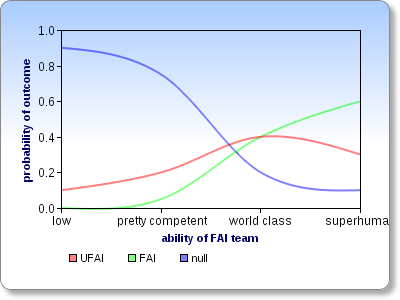Today I was appointed the new Executive Director of Singularity Institute.
Because I care about transparency, one of my first projects as an intern was to begin work on the organization's first Strategic Plan. I researched how to write a strategic plan, tracked down the strategic plans of similar organizations, and met with each staff member, progressively iterating the document until it was something everyone could get behind.
I quickly learned why there isn't more of this kind of thing: transparency is a lot of work! 100+ hours of work later, plus dozens of hours from others, and the strategic plan was finally finished and ratified by the board. It doesn't accomplish much by itself, but it's one important stepping stone in building an organization that is more productive, more trusted, and more likely to help solve the world's biggest problems.
I spent two months as a researcher, and was then appointed Executive Director.
In further pursuit of transparency, I'd like to answer (on video) submitted questions from the Less Wrong community just as Eliezer did two years ago.
The Rules
1) One question per comment (to allow voting to carry more information about people's preferences).
2) Try to be as clear and concise as possible. If your question can't be condensed into one paragraph, you should probably ask in a separate post. Make sure you have an actual question somewhere in there (you can bold it to make it easier to scan).
3) I will generally answer the top-voted questions, but will skip some of them. I will tend to select questions about Singularity Institute as an organization, not about the technical details of some bit of research. You can read some of the details of the Friendly AI research program in my interview with Michael Anissimov.
4) If you reference certain things that are online in your question, provide a link.
5) This thread will be open to questions and votes for 7 days, at which time I will decide which questions to begin recording video responses for.
I might respond to certain questions within the comments thread and not on video; for example, when there is a one-word answer.

Since a powerful AI would likely spread its influence through its future lightcone, rogue AI are not likely to be a major part of the Great Filter (although Doomsday Argument style anthropic reasoning/ observer considerations do potentially imply problems in the future of which could include AI). One major suggested existential risk/filtration issue is nanotech. Moreover, easy nanotech is a major part of many scenarios of AIs going foom. Given this, should the SIAI be evaluating the practical limitations and risks of nanotech, or are there enough groups already doing so?
The first point looks like this one. The case for the Doomsday Argument implying problems looks weak to me. It just says that there (probably) won't be lots of humans around in the future. However, IMO, that is pretty obvious - humans are unlikely to persist far into an engineered future.